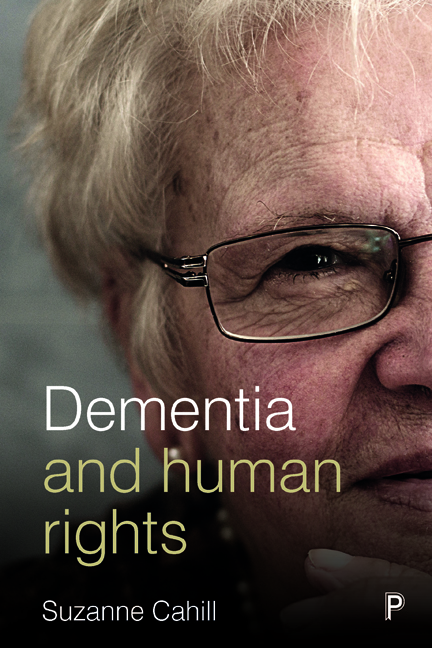seven - Legal capacity for people with dementia: a human rights approach
Published online by Cambridge University Press: 22 April 2022
Summary
Introduction
In this chapter I explore the right to legal capacity for people with dementia as set out in Article 12 of the UN CRPD. As has been demonstrated in earlier chapters in this volume (see Chapters Two and Three in particular), people with dementia come within the CRPD's conceptualisation of persons with disabilities, and therefore have access to all the rights contained in the Convention. My analysis in this chapter first focuses on General Comment No 1 of the UN CRPD Committee (OHCHR, 2014), which represents an authoritative interpretation of the treaty text by its monitoring body, and provides the clearest guidance to States Parties to the CRPD to date on how the right to legal capacity for persons with disabilities, including people with dementia, may be ensured.
Second, I provide some examples of law reform around the world on the issue of legal capacity, and consider how these proposed reforms might impact on people with dementia. In particular, I focus on the early reform efforts in the Canadian province of British Columbia (which occurred prior to the entry into force of the CRPD), and the most recent development at the time of writing, in the Republic of Ireland.
Finally, I consider how the right to legal capacity might be framed in any new UN Convention on the Rights of Older Persons, based on the discussions to date in the UN Open-Ended Working Group on Ageing. This analysis provides important insights into how the right to legal capacity might further evolve in international human rights law with the advent of a new treaty on the rights of older persons.
Article 12 of the CRPD and General Comment No 1
Some preliminary reference was made to Article 12 in Chapter Four of this volume, which examined the individual's right to a diagnosis, its disclosure and to live independently in the community. The right to legal capacity of persons with disabilities is expressed in Article 12 as a component of the right to equal recognition before the law. In essence, the right to legal capacity means the recognition of the individual as a person before the law, and as an actor before the law with legal rights and responsibilities.
- Type
- Chapter
- Information
- Dementia and Human Rights , pp. 157 - 174Publisher: Bristol University PressPrint publication year: 2018



